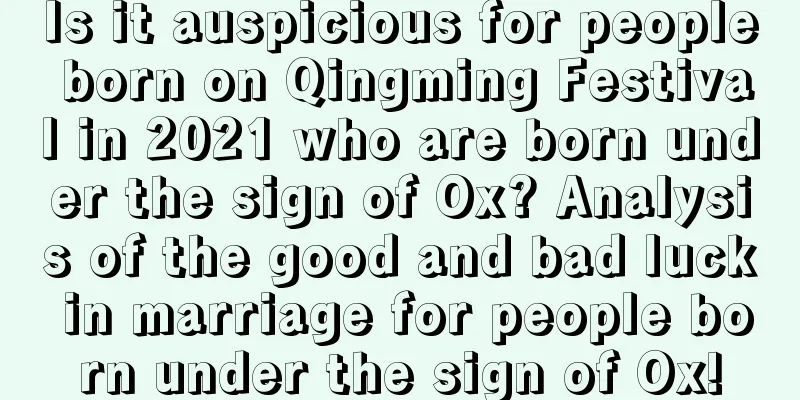The Spring Festival customs are very rich. Let’s explain in detail how people celebrate the Spring Festival in Jiangsu and Zhejiang regions?

Introduction: Our country is vast and has rich resources. The cultures in the north and south are obviously different. The Spring Festival is the most traditional and important festival in our country. The customs of the Spring Festival vary from place to place. In this issue, the editor will take you to learn about the traditional customs of celebrating the Spring Festival in Jiangsu and Zhejiang. Let’s take a look! In addition to the grand and festive celebrations of the Spring Festival, we also need to pay attention to some taboos regarding the Spring Festival. Next, let’s take a closer look at the Spring Festival special topic compiled by Mr. Shui Mo!Spring Festival customs in Jiangsu and Zhejiang: opening firecrackersIn the early morning of the first day of the New Year, the first thing every household does is to rush to fire the "opening cannon". The whole city is filled with the sound of firecrackers, symbolizing bidding farewell to the old and welcoming the new and bringing in blessings, commonly known as "welcoming the year". There are also conventions for setting off the "opening cannon". Generally, a string of small firecrackers, called "hundred-son cannons", is set off first; then double-sound big firecrackers are set off. Only three big firecrackers are set off, meaning that the epidemics and disasters of the year can be dispelled, and the new year is welcomed. It is required that all three firecrackers go off, with loud and crisp sounds, for the most auspiciousness. It is believed that the earlier the "opening cannon" is fired, the better, symbolizing that everything will go smoothly this year, and farmers will get rich and have a good harvest. In some places, when people open the door firecrackers, they chant something: "Open the door, firecrackers; wealth and happiness will come." Generally, the outer and inner skins of firecrackers are all bright red. After they are set off, paper flowers are all over the ground, shining like brocade, filling the whole room with auspicious colors and joy. Setting off firecrackers is now banned in towns, but can still be set off in rural areas and on fishing islands.Spring Festival customs in Jiangsu and Zhejiang: worshipping the six godsAfter the opening cannon is fired, men and women in each household wear new clothes. The housewife brews Buddhist tea and places various offerings in Jiangxi porcelain bowls on the incense table. Ancestor images are hung in the central hall. People worship their ancestors first and then the six gods (Kitchen God, Eaves God, White Tiger God, Well God, Land God, and God of Wealth). People believe that these six gods are the patron saints of every family. During the New Year worship, they mainly pray for the safety of the population and prosperity of the family business throughout the year.Spring Festival customs in Jiangsu and Zhejiang: welcoming the three godsAfter worshipping the six gods, a small square table is set up in the courtyard, filled with a bowl of rice, covered with red paper and sealed around the edges, and placed on the table. Incense is burned and candles are lit, and worship is performed devoutly. This is called "receiving the three gods" (namely Yuqing, Shangqing and Taiqing in Taoism). After the sacrifice, the table is moved indoors and is not moved until the fourth day of the first lunar month, when the gods are sent away and the seats are cleared.Spring Festival customs in Jiangsu and Zhejiang: Ancestor worshipIn the old days, at noon on the first day of the first lunar month, every family in Dongtou County would worship their ancestors. The ceremony is presided over by the housewife. First, arrange the offerings, put out the wine cups and chopsticks, and pour rice wine into the wine pot. A bench should be placed between the altar and the offering table, and then red candles should be lit, and incense should be burned on the incense burners of all the shrines for ancestors, the Three Emperors, the God of Land, the God of Kitchen, etc. When the red candle has burned about three-quarters or the incense is about to burn out, start burning "gold paper" (a kind of paper money covered with gold foil and folded into the shape of a gold ingot, which is believed to be effective only after chanting sutras) and set off firecrackers. Finally, the food is removed. Before removing the food, the chairs in front of the altar must be moved first. When worshiping ancestors, the gifts on the altar must not be moved; all offerings, except cakes and fruits, must be re-cooked or steamed before being eaten. Otherwise, it is considered disrespectful to gods and ancestors.Spring Festival customs in Jiangsu and Zhejiang: Incense-burningThere is an old custom of "burning incense" early in the morning on the first day of the first lunar month. All the civil and military officials in the city, wearing hats and riding in carriages, with all the deacons, rang gongs to clear the way, and went to various temples to burn incense with a grand ceremony. The elderly and the heads of each family had bathed and changed their clothes before dawn, and rushed to the community temple or nearby monastery to open the door, burn the first incense, and light incense lamps. Some even stayed up all night on New Year's Eve and waited in the temple. After the hour of Hai, people quickly burn incense to show their piety. It is believed that being the first person to arrive and light incense is the most auspicious, so there is a custom of competing to light the first pair of candles. As the saying goes, "Whoever opens the temple door first will make a lot of money this year." Elderly people go to various temples to worship the gods, mainly praying for good luck in the new year and safety for the whole family. Although many people in China no longer believe in religion, many people still burn incense during the Spring Festival, hoping to get a good omen for themselves. Due to differences in class, industry, gender, age, etc., the wishes of the endless stream of worshippers are also different. Some pray for prosperity in business, some pray for a good harvest, some pray for children, and so on. In larger temples, such as the Dong'ouwang Temple, worshippers have to give red envelopes to the temple priests. If their prayers are answered, wealthy people have to use large candles weighing more than 100 kilograms to fulfill their wishes on the first day of each year.Summary: The customs introduced in the above article are some of the traditional customs of celebrating the Spring Festival in Jiangsu and Zhejiang regions that the editor wants to introduce to you. You can learn about them. I hope that under the influence of the new era culture, you will not forget the cultural heritage of traditional culture! After reading this article, there are more exciting content in the Spring Festival special topic, let’s take a look! |
Recommend
Is it okay to shave your child’s head on May 21, 2019, or is it okay to have a haircut on Xiaoman?
Introduction: In our country’s tradition, haircuts...
A list of auspicious and inauspicious times and taboos for the second day of the twelfth lunar month in 2020
When the twelfth lunar month comes, the winterswe...
Is it a good idea to open companies and stores on December 17, 2020 in the lunar calendar?
Is it a good idea to open companies and stores on...
Is it a good idea to hold a funeral on the 12th day of the first lunar month in 2019?
As the saying goes, "Once dead, you can't...
What are the traditional customs of Frost Descent? What do the three signs of Frost Descent mean?
Many people must know that the frost is coming soo...
Is it advisable to renovate the house one day after the Rain Water in 2020? Is it more likely to rain during the Rain Water solar term?
Introduction: You also need to choose an auspiciou...
Is it a good day to set up the bed today, February 19, 2019, the Rain Water solar term? Is it a good day to set up the bed on the Rain Water solar term?
Introduction: In our country's tradition, it i...
Can I get married on September 18th of the lunar calendar in 2018?
Want to know more about the days in the ninth mon...
Is it a good time to move house on September 17th of the lunar calendar in 2020?
Is it a good time to move house on September 17th...
The location of the God of Wealth on the fifth day of the ninth lunar month in 2020
An overview of the location of the God of Wealth ...
When is the Lantern Festival in 2019 in the lunar calendar? Is it a good date to open a business on the Lantern Festival in 2019?
Introduction: The Lantern Festival is an important...
When is the Summer Solstice in 2021? Is it possible to get married on the Summer Solstice?
Deer antlers fall off, cicadas start to chirp, and...
Is the Autumnal Equinox on September 23, 2019 an auspicious day for opening a business? What time, minute and second is the Autumnal Equinox in 2019?
Introduction: Opening a business is also an import...
Do baby chickens born on the Ghost Festival have good fortune? Is it okay for a baby chicken to be born in mid-July?
Introduction: In our tradition, people usually cel...
Is March 22nd of the lunar calendar in 2022 an auspicious day? Is it appropriate to set up the bed on this day?
The third month of the lunar calendar is tradition...









